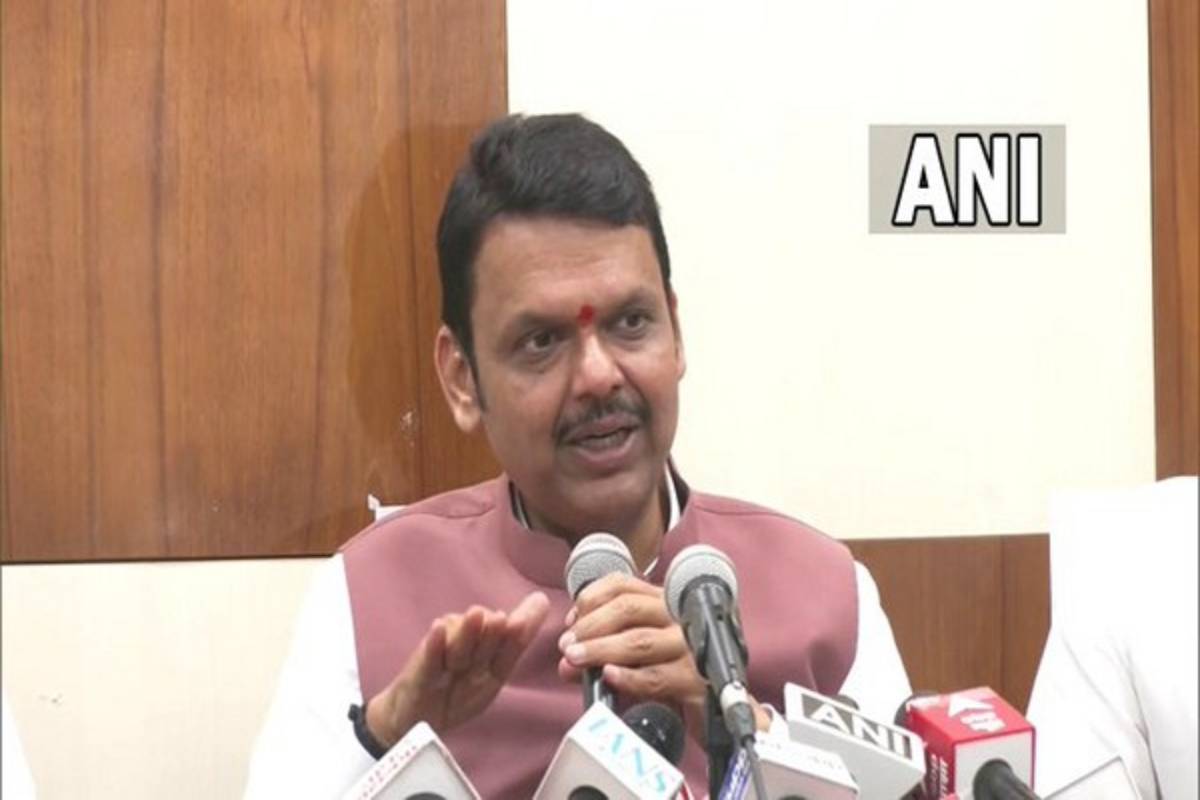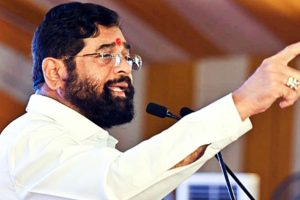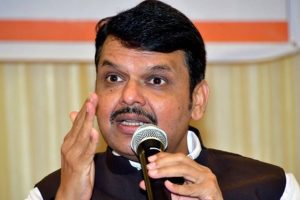Emphasising the unity within the Mahayuti alliance, Maharashtra Chief Minister Devendra Fadnavis on Thursday stated that Deputy Chief Ministers Eknath Shinde and Ajit Pawar stand firmly with him, and the alliance remains steadfast in its direction and pace, with only their roles having changed.
Addressing a press conference after taking the oath as Chief Minister, Fadnavis said the government would make thoughtful decisions aimed at the betterment of Maharashtra.
“In the past two and a half years, we have worked for Maharashtra’s development, and we will continue to do so. We will not stop now. The direction and speed remain unchanged, but our roles have shifted. Every decision we make will prioritise Maharashtra’s progress. We aim to fulfil the promises outlined in our manifesto,” he said.
On opposition criticism regarding delays in forming the government, Fadnavis noted that coalition governments require extensive consultations.
“I don’t see this as a delay in forming the government. Even in 2004, the process took 12-13 days, and in 2009, it took about nine days. In a coalition setup, decisions require widespread consultation. We’ve completed most of this process and have nearly finalised the allocation of portfolios, with a few remaining decisions to follow,” he explained.
Reaffirming his commitment to unity, he said, “Eknath Shinde and Ajit Pawar are with me. People have chosen us for stability, and we will work together. We will continue initiatives like the ‘Majhi Ladki Bahin Yojana.’ The Cabinet has decided to hold a special Assembly session on December 7-8 to elect the Speaker, with the Governor’s address scheduled for December 9.”
Earlier today, Devendra Fadnavis was sworn in as Chief Minister of Maharashtra at a ceremony held at Mumbai’s Azad Maidan, alongside Eknath Shinde and Ajit Pawar, who assumed the roles of Deputy Chief Ministers.
As his first act in office, Fadnavis approved Rs 5 lakh in monetary assistance for a bone marrow transplant patient.
“The first decision I signed today was to allocate Rs 5 lakh from the Chief Minister’s Relief Fund for a bone marrow transplant. The overwhelming mandate we’ve received carries a weight of expectations and a significant challenge to meet them. Fiscal discipline will be crucial as we implement our ambitious plans,” Fadnavis said.
According to the Chief Minister’s Office, this assistance was sanctioned for Chandrkant Shankar Kurhade, a Pune resident.
The Chief Minister also directed the administration to expedite processes and work with increased vigour to meet public expectations. He stressed the importance of accelerating efforts, addressing core issues, and prioritising sustainable development in decision-making.
The swearing-in ceremony was attended by several prominent leaders, including Prime Minister Narendra Modi, Union Home Minister Amit Shah, and Defence Minister Rajnath Singh.
Born on 22 July 1970 in Nagpur, Fadnavis holds a law degree, a postgraduate degree in business management, and a diploma in project management. He began his political journey in 1992 as a councillor in the Nagpur Municipal Corporation, serving two terms, and has since been elected as an MLA for five consecutive terms.
From 2014 to 2019, Fadnavis served as Chief Minister of Maharashtra, becoming the second-youngest person to hold the office after Sharad Pawar.
During his tenure, he managed key portfolios, including Home, General Administration, IT, Urban Development, Law and Judiciary, Ports, and Information & Public Relations. His leadership saw the launch of significant projects like Mumbai Next, the Police Digitisation Project, the Samruddhi Expressway, and the Chhatrapati Shivaji Maharaj Krishi Sanman Scheme. In 2019, he briefly served as Chief Minister during the Maharashtra political crisis.
In the 2024 Maharashtra Assembly Election, the BJP-led Mahayuti alliance secured a historic victory, winning 235 seats. The BJP emerged as the largest party with 132 seats, while the Shiv Sena and NCP secured 57 and 41 seats, respectively. The Maha Vikas Aghadi (MVA) suffered a significant defeat, with Congress winning just 16 seats, Shiv Sena (UBT) securing 20, and the NCP (Sharad Pawar faction) managing only 10.





